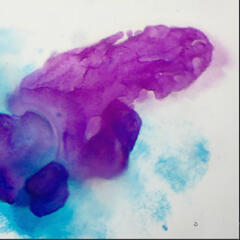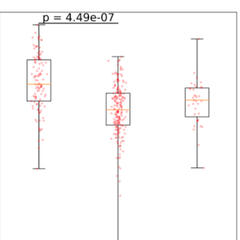
Fayth tan
Graduate researcher studying animal regeneration.
Science writer with interests in science history and philosophy.This is no longer being updated! New website fxfytan.github.io
Research
Investigating the role of the cardiac neural crest in mouse heart regeneration
The neural crest is a multipotent stem cell population, with the cardiac subpopulation contributing to the developing heart. Previous work also showed that the cardiac neural crest also contributes to heart regeneration in zebrafish.In mice, the heart is able to regenerate, but only in the first week of life. I am comparing the cardiac neural crest in neonatal mice to identify key difference that may explain this loss of regenerative ability.

A conserved strategy for inducing appendage regeneration
We induced a regenerative response in jellyfish, flies and mice. Administering the amino acid L-leucine and the growth hormone insulin induced appendage regeneration in both the jelly and fly, and digit regeneration in the mouse. This suggest that energetic parameters and organismal metabolism play a role in kickstarting a regenerative response in animals.
Published on eLife
eLife Digest

Markedly heterogeneous COVID-19 testing plans among US colleges and universities
As part of my advocacy work on the Graduate Student Council, I collaborated with other concerned researchers over summer 2020 to document COVID-19 testing plans in >500 colleges and universities. Our work was cited in articles about college reopenings in outlets such as the New York Times, the Washington Post and the Atlantic.
Available as a preprint on medRxiv
About
I’m a PhD candidate in biology at Caltech researching the evolution (and loss) of regeneration across animal phylogeny. I received my B.S (with honors) in Marine Biology from U.C. San Diego. My background is in evolutionary-developmental biology, which means I’ve studied a menagerie of embryos to understand how the amazing diversity of form in the animal kingdom emerges. I also regularly contribute to Oceanbites where I explain current marine biology research in as many bad puns as possible.I also write about the stories we tell ourselves about science— how we construct them, how the sociocultural zeigeist influences it, how our humanity— our fears, anxieties, hopes and passions— inexorably bleed into it.If you’re drawn to the weirdness of the natural world, obscure science history, the intersections between poetry, philosophy and art and science, say hi on twitter!
Writing and scicomm
General science writing
How do you solve a problem like the glia? Arcadia Science.
A life of the neurodivergent mind. SISTER STEM.
Femininity, Foreignness, and Flowers: How culture shapes scientific discovery. Caltech Letters.
Actin, algae and answers in search of a question Arcadia Science, Scicomm hackathon finalist entry.
No more free kelp in Northern California. The Xylom.
On regeneration and queer identity. Assigned Scientist at Bachelors podcast.
Oceanbites posts
The Care and Feeding of Tropical Cichlids.
S'not your typical carbon capture
Motion in the ocean
Algal automata
Diatom dialogue
A super simple approach to immunity
How did the flying fish get its "wings"?